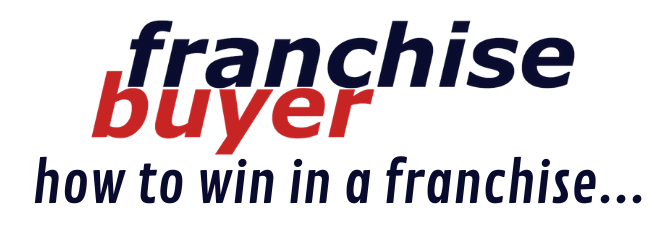
Australian Franchising in 2017
The franchise sector in Australia is in a mature state, and has become the distribution method/business model of choice for some 1,120 systems. Being this size in a population of just 24 million means franchising is always more or less in focus
According to Professor Lorelle Frazer and Griffith University in their Franchising Australia 2016 Report, this number of 1,120 franchise systems has dropped slightly from the 1,160 reported in 2014, but many systems have grown for a minor positive change in the size of the industry.
Professor Frazer also reports that Franchising in Australia:
- Directly employs around 470,000 people.
- Has around 70,700 business format franchised units and 8,300 company-owned units, producing a total of 79,000 units operating in business format franchises.
- Has an additional estimated 6,050 fuel retail and 4,618 motor vehicle retail outlets.
- Has a total turnover in the entire franchising sector estimated to be $146 billion (compared with $144 billion in 2014).
History
Franchising has been in Australia since 1815, when it was started by Sydney Hospital being built and was funded by the private sector, allowing the operators to charge a fee for service, and being allowed to import 60,000 gallons of rum to service the people. The hospital was also known as Governor Macquarie’s Rum Hospital.
The food franchises probably started the rapid growth with McDonald’s, KFC, Hungry Jacks (aka Burger King) and some other large QSR’s (Quick Service Restaurants) bringing their systems from America in the late 1960’s and early 1970’s. Personally, I became involved in franchising when on the 30th September 1980, government legislated in the form of the Petroleum Retail Marketing Franchise Act of 1980, that every service station owned, leased or operated by all the major oil companies was effectively a franchise immediately, with the incumbent given 9 years’ worth of franchise tenancy.
That created around 8,000 new franchises overnight!
Franchise Council of Australia
Australia has a strong body pushing franchising forward in the form of the Franchise Council of Australia (FCA). We are fortunate enough to have former Small Business Minister, Hon Bruce Billson as the Executive Chairman, and this brings strong contacts to Government to keep abreast of the regulatory issues.
The FCA have chapters in all mainland states, and run a 3-day National Franchise Convention every year, which is seen as the peak event, cumulating in the Gala Awards Dinner and the announcements of the awards including mature Franchise System of the Year – won this year by Poolwerx.
Education is one of the cornerstones of the FCA, and they and Griffith University have worked with the ACCC to ensure there is free online education available for anyone considering taking on a franchise. Many experts in the industry have contributed to bring a strong level of education to the forefront. You can find this course at https://www.franchise.edu.au/home/education/for-franchisees/pre-entry-franchise-education
The 7-Eleven storm
Not everything runs to plan, and late in 2015 a television expose was run on 7-Eleven, and how many of their franchisees were exploiting their workers by underpaying them, or demanding a kickback of part of their wage. This has resulted in various legal actions, and 7-Eleven committing to pay the proven claims that have come forward. This is also being seen as a warning to all other employers that you cannot underpay the national wage agreements, and expect to get away with it.
Both sides of Australian politics have come out to say that franchisors should be responsible to educate their franchisees in this area and that they will need to take all reasonable steps to ensure this is not occurring, or risk being held responsible in the future. The government has committed to increase the powers of the Fair Work Act, and increase their resources by an additional $20M funding for enforcement.
The lesson to any franchise system and any business for that matter in Australia, is that strictly complying with the minimum wage arrangements is simply not negotiable.

Finding Franchisees in Australia
The biggest complaint from franchisors has been the quality and financial capacity of the prospective franchisees. Whilst many are willing, the financial requirements to join a good system are quite high, and often out of practical reach.
Australia has a strong banking system, and banks are prepared to loan some monies to prospective franchisees against the goodwill of the business. FRANdata has recently expanded in Australia to assist in this process, by encouraging the banks to evaluate franchise systems and be prepared to loan monies to well-run franchise systems and their potential franchisees. http://www.frandata.com.au/
Professor Frazer, in her 2016 report states the total start-up cost for a new retail franchise unit was $287 500 compared to $59 750 in a non-retail franchise. This included an initial franchise fee of $31 500 in retailing compared to $28 000 in non-retail franchises.
The shortage of franchisees has led many companies to seek hardworking people who wish to come to Australia to apply. This has led to quite a deal of Business Immigration, adding to the ethnic diversity of our country.
Regulated markets
Franchising has become a mature distribution method for many major companies. The Federal Government has stepped in to place some forms of national regulation over it, by legislating a Code of Conduct, which is administered by the Australian Competition and Consumer Commission (ACCC). The Code of Conduct is aimed to be:
- Fair to both parties,
- Ensure a proper Disclosure Statement is provided to would be Franchisees,
- Ensure the Franchise Agreement is reasonable to both parties,
- To minimise legal actions by bringing an arbitration process in before Legal actions are taken.
There has been some push from various state governments over the last 10 years to introduce their own separate regulations; however this has not come to pass, meaning that we have one set of regulations Australia wide. The huge advantage of this is to minimise red tape, unlike some other countries (such as the USA), where some states have their own franchise regulations, creating the need to individually comply in registration and fees from one state to another.
Summary
Franchising is moving slowly forward in Australia where we have a relatively mature market, and a great variety of systems working under the franchise format.
Australia is also open to business for international franchise systems to enter the market with minimal foreign ownership constraints. The main point of difference to many other countries is our relatively mature legislation which is definitely aimed at ensuring the franchisor acts responsibly, and encourages the franchisees to be properly funded and act in a responsible and legal manner.






